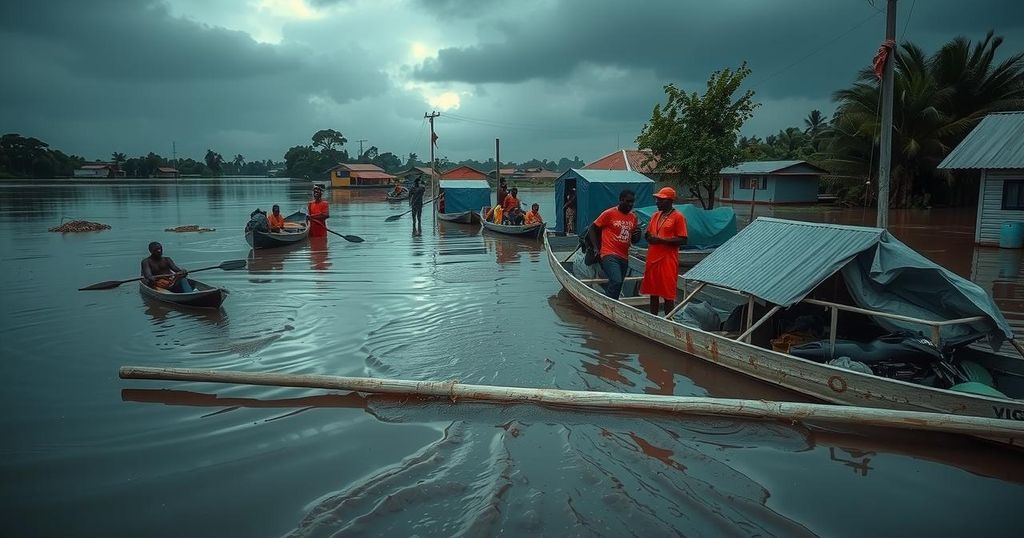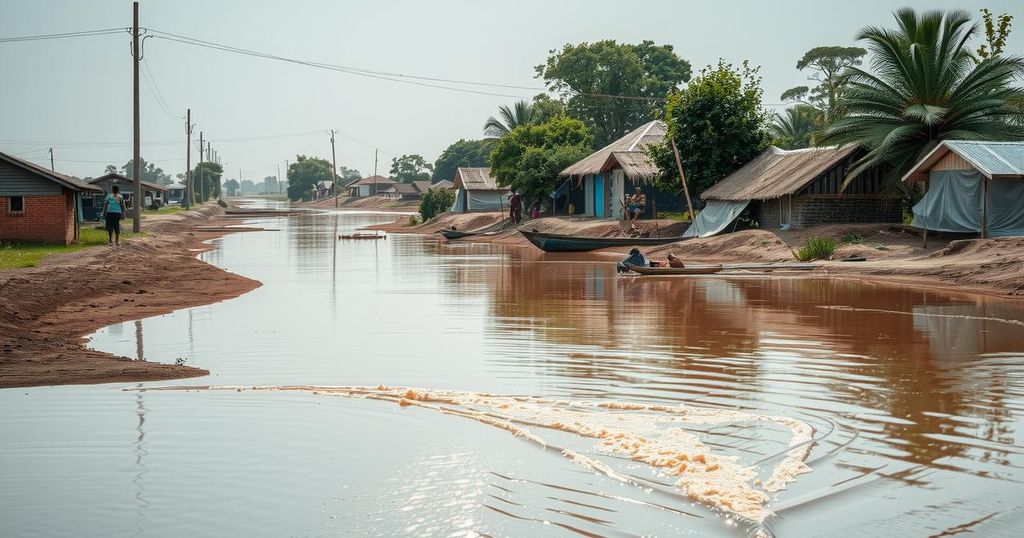Weather
ABYEI, AFRICA, ANI, CENTRAL EQUATORIA, DISASTER MANAGEMENT, FLOOD, FLOODS, HUMANITARIAN AID, INTER, INTERNALLY DISPLACED PERSONS (IDPS, INTERNATIONAL FEDERATION OF RED CROSS, JUBA COUNTY, MONSOON, OCHA, SUDAN, UN ICEF, UNITED NATIONS, UNITED NATIONS OFFICE FOR THE COORDINATION OF HUMANITARIAN AFFAIRS
Ethan Kumar
0 Comments
Severe Flooding in South Sudan Displaces Hundreds of Thousands Amid Rising Malaria Cases
Flooding in South Sudan has impacted 1.4 million people, displacing over 300,000 and causing a rise in malaria cases, particularly in Jonglei and Northern Bahr el Ghazal states, according to the UN.
The United Nations has reported that flooding in South Sudan has profoundly impacted approximately 1.4 million individuals, resulting in the displacement of over 300,000 people. The humanitarian crisis has been exacerbated by a notable spike in malaria cases across various states. In their recent assessment, the United Nations Office for the Coordination of Humanitarian Affairs (OCHA) highlighted that over 51 percent of those affected reside in Jonglei and Northern Bahr el Ghazal states, where the floodwaters have severely devastated infrastructure, homes, livestock, and crops. Furthermore, assessments conducted earlier this week revealed an additional 1,720 flood-displaced individuals in Mangalla, located in Juba County of Central Equatoria State. The health system is currently overwhelmed by the rising malaria cases, particularly in Jonglei, Unity, Upper Nile, Northern Bahr el Ghazal, Central Equatoria, and Western Equatoria states. A significant number of flood-affected people remain in dire need of humanitarian assistance, as work continues to address their critical health and shelter needs. Since May 2024, South Sudan has been experiencing disastrous floods due to intense rainfall and the overflow of the Nile River banks. This natural disaster is compounded by the country’s increasing vulnerability to climate change, having experienced similar flooding patterns in recent years. The United Nations Children’s Fund (UNICEF) has indicated that floods in South Sudan annually affect between 750,000 and over one million citizens, highlighting the persistent nature of this humanitarian issue.
The ongoing flooding crisis in South Sudan has been attributed to extreme weather conditions linked to climate change, resulting in severe rainfall and river overflow. The floods have led to significant humanitarian challenges, including displacement, loss of property, and agricultural devastation. The country’s health systems are particularly strained, with burgeoning malaria cases adding further complications to the already critical situation. Understanding the depth of this crisis is crucial for mobilizing the necessary international aid to assist the vulnerable populations.
In summary, the flooding in South Sudan has caused significant hardship for over 1.4 million people, with more than 300,000 individuals displaced and a surge in malaria cases posing severe health risks. Jonglei and Northern Bahr el Ghazal states are hardest hit, necessitating urgent humanitarian assistance. The interplay between climate change and recurring floods underscores the critical need for comprehensive strategies to manage such natural disasters and protect affected populations.
Original Source: www.aninews.in




Post Comment